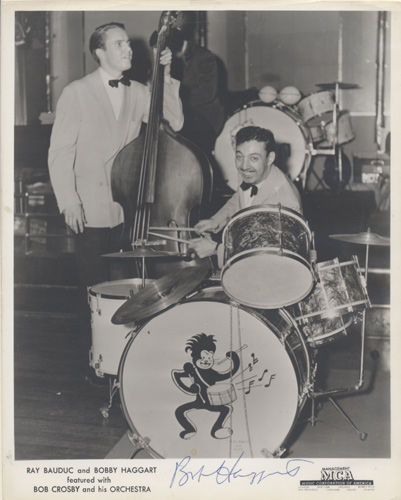
Bob Haggart and Ray Bauduc. Photo courtesy of the Library of Congress.
On this edition of Riverwalk Jazz, our repertoire of All-American classic jazz ranges from Jelly Roll Morton to Duke Ellington and Benny Goodman on a show we call Fireworks: Red, Hot & Blues.
The tune “South Rampart Street Parade” was a 1938 collaboration between two charter members of the Bob Crosby Bob Cats—bassist Bob Haggart and drummer Ray Bauduc. Haggart joins The Jim Cullum Jazz Band and piano master Dick Hyman in a performance on this week’s radio show. Jim Cullum notes that South Rampart Street in New Orleans’ French Quarter is not known as a hotspot, nor does it have a reputation for anything other than being the title of this number. ‘The real action,’ Jim says, ‘is on North Rampart Street, but Haggart and Bauduc apparently didn’t know it when they selected this tune title.’
“Fireworks,” from 1928, was one of the great Hot Five series of discs recorded by Louis Armstrong in Chicago for the Okeh label. The original recording also featured the seminal pianist Earl Hines. The Hot Five series represents the very beginning of heroic soloing in jazz and remains influential to this day. The Cullum Band version of this number is one of their signature arrangements.
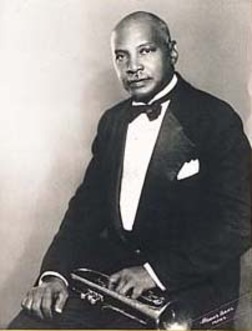
W. C. Handy. Photo courtesy last.fm
W.C. Handy compositions occupy a significant place in The Jim Cullum Jazz Band repertoire. Known as “The Father of the Blues,” Handy was the first literate musician to collect and codify the music he heard performed by African-Americans into the 3-part AAB blues form.
Handy first composed “Memphis Blues” in 1909 as a campaign song for a Memphis mayoral candidate of that year, Boss Crump. Originally the tune title bore Mr. Crump’s name. Many of Handy’s best-known tunes are in fact 12-bar blues, such as “Beale Street Blues,” “Yellow Dog Blues” and perhaps most famously the “St. Louis Blues” from 1914. The latter song became identified with Bessie Smith in the 1920s. On our broadcast this week, Linda Hopkins’ performance recalls her Broadway portrayal of Bessie Smith in her 1974 one-woman show, Me and Bessie. In that popular stage show, her signature line was “You know, I ain’t Bessie, but there’s a whole lot of Bessie in me.”
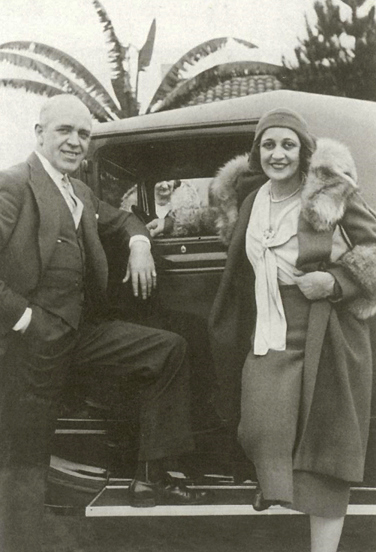
Jimmy McHugh and Dorothy Fields. Photo courtesy songbook1.
Jimmy McHugh and Dorothy Fields created “Doin' the New Lowdown” as a feature number for tap dancer and entertainer Bill “Bojangles” Robinson as part of the 1928 Broadway musical, Blackbirds of 1928. This landmark show also produced McHugh and Fields’ hit songs "Diga Diga Do" and "I Can't Give You Anything But Love." Running for 518 performances, Blackbirds became the longest running show of the era to feature an all-black cast. Robinson was widely regarded as the greatest exponent of tap dancing of the time. For our show this week, we hear a few choruses of the 1933 recording of “Doin’ the New Lowdown” featuring Bojangles singing and tapping, backed up by Don Redman and His Orchestra, followed by a live version with The Jim Cullum Jazz Band and 21st century tap master Savion Glover. David Holt tells the audience, “We had such a great time with Savion in San Antonio. He’s a huge star, a genius, and a very sweet guy, too.”
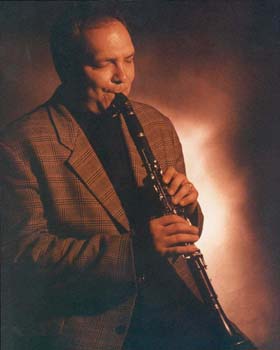
Ken Peplowski. Photo courtesy of the artist.
This week’s up-tempo version of Duke Ellington’s 1930 “Ring Dem Bells” features the great contemporary reed virtuoso Ken Peplowski on clarinet. “Peps,” a native of Cleveland, appeared with Benny Goodman in the 1985 PBS-TV special, Let’s Dance, and in his long career has recorded and concertized widely both as a leader and sideman. In 2007 Peplowski was named jazz advisor of the Oregon Festival of American Music and music director of Jazz Party at The Shedd, both in Eugene, Oregon.
Trumpet and flugelhorn master Clark Terry holds the distinction of having worked in bands led by both Duke Ellington and Count Basie. On this week’s show, Clark plays and sings the 1932 Ellington anthem, “It Don't Mean a Thing (if it Ain't Got That Swing)”; and “Mumbles,” a novelty number he often performed on the Tonight Show with Johnny Carson sending up a tipsy performer at a local blues bar.
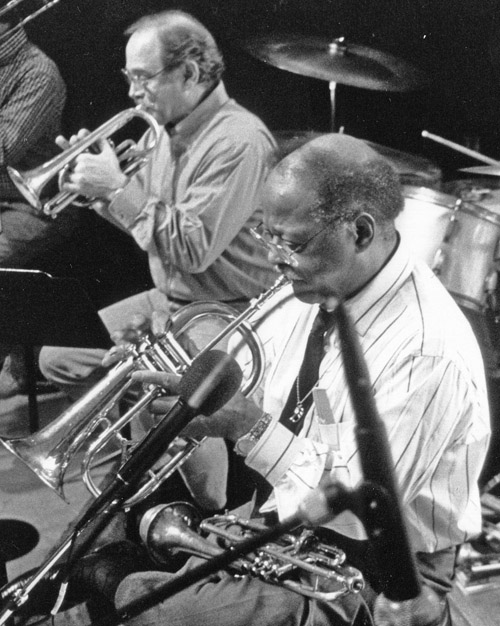
Jim Cullum and Clark Terry. Photo courtesy Riverwalk Jazz.
“Grandpa's Spells” is one of many piano pieces—this one from 1923—left behind by the great New Orleans jazz pioneer Jelly Roll Morton. Joining Cullum Band pianist John Sheridan for a two-piano version is frequent Riverwalk Jazz guest artist and early jazz piano stylist Dick Hyman. Although their version is faithful to the form, harmony and melodies composed by Morton, there is much in this performance that is completely improvised in the characteristic styles of the two jazz pianists.
“Burnin' the Iceberg” comes from a series of compositions Morton recorded in New York in 1929 for the Victor label. The Cullum Band version of this tune is known for an intensity that goes far beyond the original. Actor/playwright Vernel Bagneris, known for his portrayals of Jelly Roll Morton on stage, sings Morton’s “Doctor Jazz,” including the seldom-performed verse.
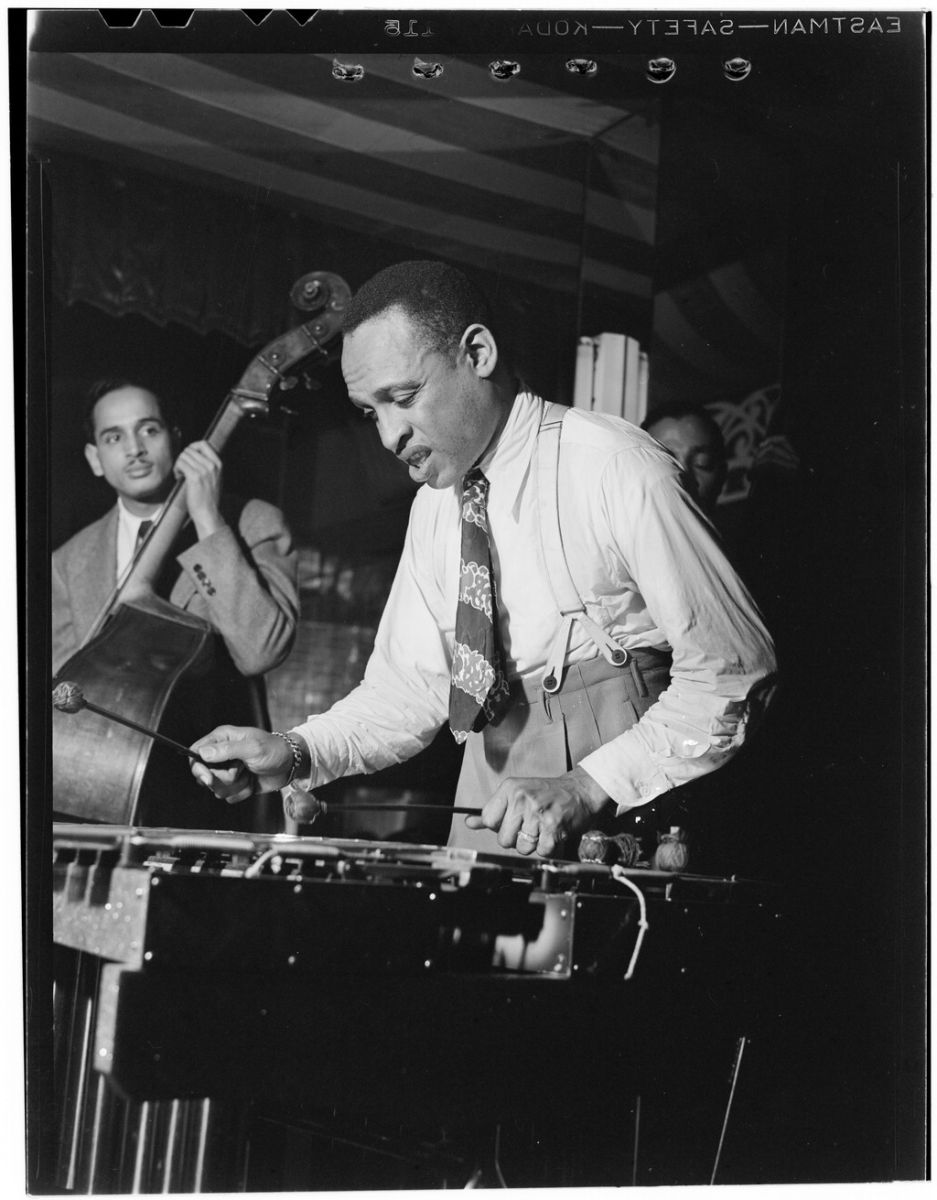
Lionel Hampton, 1946. Photo courtesy of the Library of Congress.
Vibes pioneer and bandleader Lionel Hampton visited the Landing in 1990. On our show he plays “7 Come 11,” one of the famous sextet “riff tunes” he recorded with Benny Goodman and Charlie Christian in 1939. About Hampton’s artistry, David Holt says, “During the rehearsal they played through “7 Come 11” the first time, and he did a tremendous solo. I thought it was pretty amazing, so I assumed he had the solo perfectly worked out. They played it again, and he played something completely different and just as wonderful. And then in the evening when we actually did the broadcast, he played something even better. All of his music was full of life, energy and incredible virtuosity.”
The sentimental “(I’d Give a) Dollar for a Dime” was created by the East Coast ragtime piano master and composer Eubie Blake. The affecting lyric is by Andy Razaf. The tune was a favorite of Basie Band singer Joe Williams, and his feeling for it is reflected in this masterful performance by Williams, captured live at the Landing with John Sheridan providing piano accompaniment.
Text based on Riverwalk Jazz script by Margaret Moos Pick ©1996

